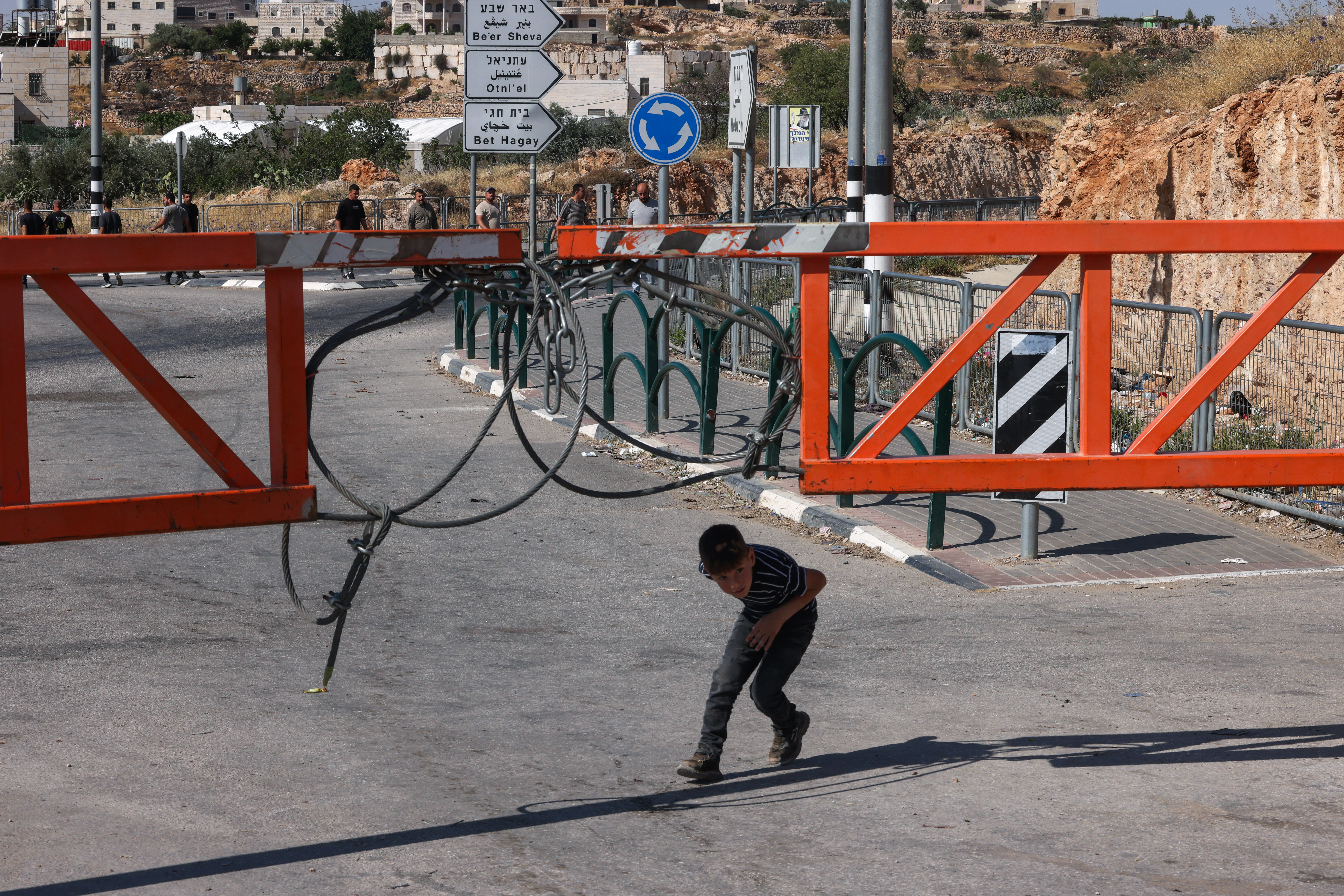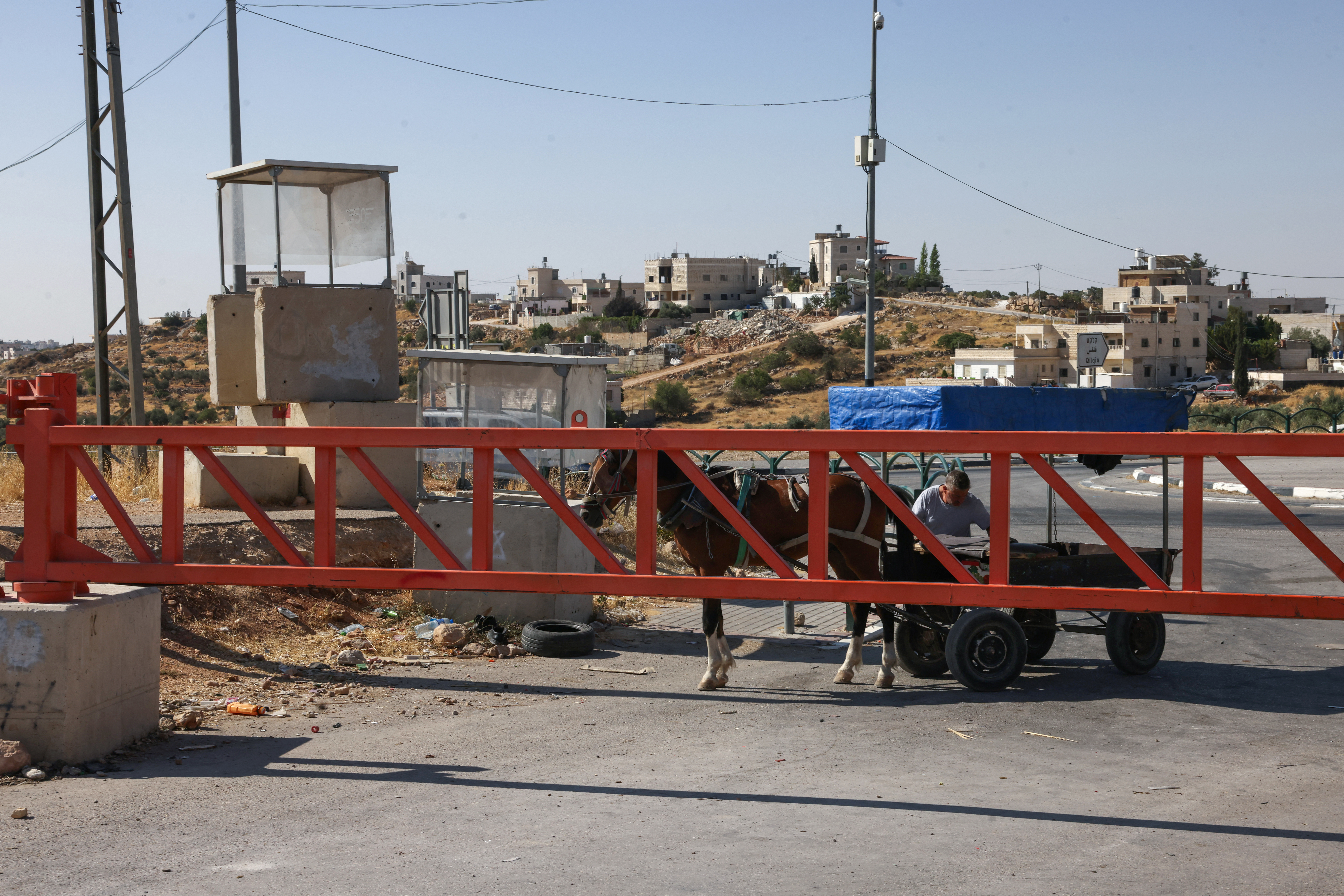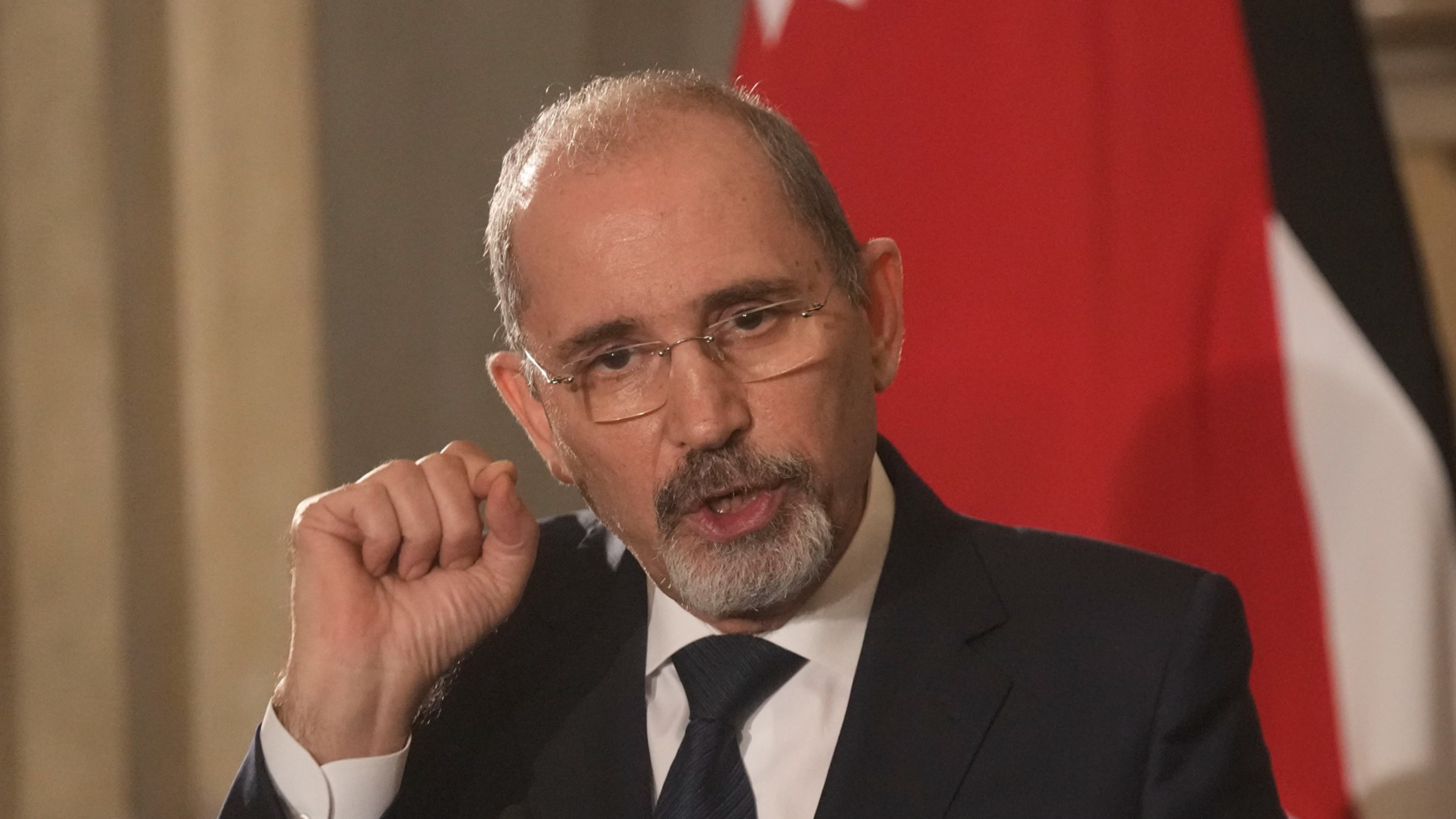
RAMALLAH/GAZA/AMMAN - Daily life for Palestinians across the West Bank has ground to a halt for the third consecutive day, as Israeli forces maintain a comprehensive closure of the territory amid heightened regional tensions.
On Friday, the Israeli army declared a state of emergency, announcing a full-scale closure of the West Bank.
The measure, which bars movement between cities, towns, and villages, was described by Israeli media as a precautionary step following recent regional developments, including the escalation between Israel and Iran.
The Israeli Broadcasting Corporation reported that the restrictions would remain in place "until further notice", while newspaper Yedioth Ahronoth said additional military units have been deployed across key locations in the West Bank.
Palestinian security sources told Xinhua that Israeli forces have shut down major roads connecting the northern, central, and southern areas of the West Bank. Iron gates and mobile checkpoints have been placed at strategic locations, significantly restricting movement.
"The closure has effectively paralyzed daily life in the West Bank," a Palestinian security official, who spoke on condition of anonymity, told Xinhua.

Local eyewitnesses described extensive military activity, including the use of live ammunition, rubber-coated bullets, sound grenades, and tear gas to disperse gatherings and vehicles in several areas.
Many urban centers and refugee camps have been encircled, resulting in the isolation of neighborhoods and communities, according to the locals.
Medical services have been particularly impacted. In a press statement, the Palestinian Red Crescent Society said that its emergency teams are encountering serious obstacles in reaching patients and transferring them to hospitals.
Local residents expressed growing concern about the continued closures' impact on daily life and economic activity.
ALSO READ: Israel military announces new wave of airstrikes on Iranian missile sites
Ashraf Saeed, a 43-year-old taxi driver from the northern West Bank city of Nablus, told Xinhua that the closure has severely disrupted his ability to work, leaving thousands of other drivers and daily wage earners in a similar situation.
"Each morning, I leave the house before sunrise, hoping to find a route that isn't blocked, but most of the time I end up stuck for hours at military checkpoints," Saeed said. "Sometimes, the soldiers fire warning shots or sound grenades just to clear the area, even if we're only waiting quietly in our cars."
Saeed, who supports a family of six, said the closure has stopped his only source of income. "With no passengers and no access to nearby cities, I've barely made any money in days. My children need food, school supplies, and medicine, but right now, I can't provide any of that," he lamented.
ALSO READ: Complete telecom collapse in Gaza paralyzes aid operations
Residents describe closures as a form of collective restriction affecting all aspects of life. In Ramallah, commercial activity has slowed considerably. Shop owner Ali Akram told Xinhua that customer traffic has declined sharply over the past three days.
"People aren't coming out, and we can't restock our supplies," Akram said. "The economy is suffering, and the longer this continues, the worse it will get for small businesses like ours."
Similar conditions were reported in Hebron, the largest city in the southern West Bank. Residents said streets and marketplaces appeared largely deserted.
Samira Aziz, a mother of three from Hebron, described the current closure as one of the most severe in recent memory.
"There's an overwhelming military presence," she told Xinhua, saying, "We're used to restrictions, but this level of closure is something new."
Palestinian officials have condemned the Israeli measures, calling them violations of international humanitarian law and urging international intervention to ease restrictions on civilians.
Palestinians killed
At least 33 Palestinians have been killed, and dozens wounded in Israeli attacks on various areas of the Gaza Strip since dawn on Sunday, according to Palestinian medical sources.
Nasser Hospital said in a press statement that at least 10 people were killed in the southern Gaza Strip city of Khan Younis after a series of Israeli airstrikes.
Three members of the same family were also killed in Khan Younis while trying to reach their homes, according to Palestinian medical sources.
In addition, an Israeli drone strike on a gathering of Palestinians in the south of Khan Younis killed five Palestinians, according to the sources.
In the north, al-Shifa Hospital said in a statement that seven people were transferred to the hospital after the Israeli army targeted civilians in the Beit Lahia area.
In a separate statement, the hospital said it received two bodies after an Israeli attack near an aid distribution center, northwest of Gaza City.
In another attack, two people were killed and more than 50 wounded near an aid distribution center in the southern Gaza Strip city of Rafah. Three others were killed near an aid distribution center in the central Gaza Strip, according to Palestinian medical sources.
In Nuseirat, in the central Gaza Strip, a Palestinian was killed and several others wounded in an artillery attack targeting an apartment.

International attention
Jordanian Foreign Minister Ayman Safadi on Sunday emphasized the need to keep the ongoing Israeli offensive in Gaza and its humanitarian consequences at the center of international attention.
In a phone call with his Italian counterpart Antonio Tajani, Safadi said the Gaza crisis remains a key driver of instability in the region, and must be addressed as part of any broader effort to de-escalate region-wide tensions, according to a statement by the Jordanian Foreign Ministry.
His remarks came as the health authorities in Gaza reported that 65 people were killed and 315 others injured over the past 24 hours, amid continued Israeli airstrikes across the besieged enclave.
The two ministers discussed unified efforts to stop regional tensions and resume negotiations as a pathway toward resolving the Iranian nuclear issue.
Safadi and Tajani reaffirmed the strength of Jordanian-Italian relations, and expressed their commitment to enhancing bilateral cooperation.


